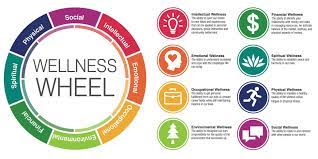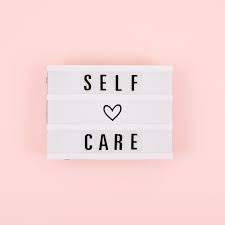Lifestyles: Embracing Balance, Wellness, and Personal Expression
In today’s fast-paced world, our lifestyles play a crucial role in shaping our overall well-being and happiness. A lifestyle encompasses the choices we make, the habits we cultivate, and the values we hold dear. It is an ever-evolving journey that reflects our unique personalities and aspirations.
Embracing a balanced lifestyle is essential for maintaining good physical and mental health. It involves finding harmony between work and leisure, exercise and relaxation, as well as socializing and solitude. Striking this equilibrium allows us to recharge our batteries, reduce stress levels, and enhance our overall quality of life.
Wellness has become a focal point in modern lifestyles. It goes beyond mere physical fitness; it encompasses holistic well-being encompassing mental, emotional, and spiritual aspects. From adopting mindful practices like meditation or yoga to prioritizing self-care routines that nourish our bodies and minds, wellness is about nurturing ourselves from within.
Personal expression is another vital aspect of modern lifestyles. It involves embracing authenticity and allowing ourselves to shine through our unique interests, hobbies, fashion choices, or creative outlets. Whether it’s through artistry, music, fashion statements or even the way we decorate our living spaces – personal expression allows us to celebrate individuality while connecting with others who share similar passions.
Moreover, lifestyle choices can also extend beyond ourselves to impact the world around us. Many individuals are increasingly embracing sustainable living practices as part of their lifestyles. From reducing waste to supporting ethical brands or opting for eco-friendly alternatives – these choices reflect a commitment towards preserving the environment for future generations.
It’s important to remember that there is no one-size-fits-all approach when it comes to lifestyles. Each person’s journey is unique; what works for one may not work for another. The key lies in self-reflection – understanding what truly brings joy and fulfillment into our lives.
In this age of endless possibilities, we have the freedom to curate our lifestyles according to our values and aspirations. It is a continuous process of self-discovery, growth, and adaptation. By embracing balance, wellness, and personal expression, we can create lifestyles that not only nurture ourselves but also positively impact those around us.
So, let’s embark on this journey together – exploring new experiences, discovering our passions, and embracing the beauty of diverse lifestyles. After all, life is meant to be lived to the fullest – in a way that resonates with who we truly are.
7 Essential Tips for a Healthy Lifestyle
- Eat a balanced diet – make sure you get plenty of fruit and vegetables, wholegrains, lean proteins and healthy fats in your meals.
- Exercise regularly – aim for at least 30 minutes of physical activity each day.
- Get enough sleep – aim for 7-8 hours every night to ensure you are well rested and have enough energy throughout the day.
- Manage stress levels – find ways to relax such as yoga, meditation or simply taking a walk in nature.
- Connect with people – build relationships with family and friends by spending quality time together or even just having a chat over the phone or online!
- Challenge yourself – set yourself goals and strive to reach them by taking small steps each day towards achieving them!
- Stay positive – focus on the things that bring you joy and try to look at life’s challenges from a different perspective so that you can find solutions more easily!
Eat a balanced diet – make sure you get plenty of fruit and vegetables, wholegrains, lean proteins and healthy fats in your meals.
Eat a Balanced Diet: Nourish Your Body and Mind
When it comes to maintaining a healthy lifestyle, one of the most important tips is to eat a balanced diet. Our bodies require a wide range of nutrients to function optimally, and this can be achieved by incorporating a variety of wholesome foods into our meals.
Start by ensuring that your plate is filled with an abundance of fruits and vegetables. These colourful powerhouses are packed with essential vitamins, minerals, and antioxidants that support overall well-being. Aim to include a rainbow of produce in your diet, as each colour brings its unique set of nutrients to the table.
Wholegrains are another vital component of a balanced diet. Opt for whole wheat bread, brown rice, quinoa, oats, or other wholegrain options. These complex carbohydrates provide sustained energy release and are rich in fibre, aiding digestion and promoting feelings of fullness.
Lean proteins play a crucial role in muscle repair and growth. Incorporate sources such as skinless poultry, fish, beans, lentils, tofu or tempeh into your meals. These protein-rich foods not only help you feel satiated but also provide essential amino acids needed for various bodily functions.
Healthy fats should also have their place on your plate. Include sources like avocados, nuts, seeds, olive oil or oily fish (such as salmon or mackerel). These fats are important for brain health, hormone production and maintaining healthy skin.
Remember that balance is key – moderation is crucial when it comes to all food groups. While it’s important to nourish our bodies with nutrient-dense foods most of the time, treating ourselves occasionally is perfectly fine too.
By adopting these dietary habits as part of your lifestyle choices, you’ll not only nourish your body but also support your mental well-being. A balanced diet provides the fuel necessary for optimal brain function and can contribute to improved mood and overall cognitive performance.
So, make it a priority to fill your plate with a variety of fruits and vegetables, wholegrains, lean proteins, and healthy fats. Your body will thank you for the nourishment, and you’ll be well on your way to embracing a healthier lifestyle that supports your overall well-being.
Exercise regularly – aim for at least 30 minutes of physical activity each day.
In our fast-paced and sedentary lifestyles, finding time for exercise can often be a challenge. However, incorporating regular physical activity into our daily routines is crucial for maintaining a healthy lifestyle. Just 30 minutes of exercise each day can make a significant difference in our overall well-being.
Engaging in regular exercise offers numerous benefits for both our physical and mental health. It helps to strengthen our muscles, improve cardiovascular health, and enhance flexibility and endurance. Exercise also plays a vital role in managing weight, reducing the risk of chronic illnesses such as heart disease, diabetes, and certain cancers.
Beyond the physical advantages, exercise has a profound impact on our mental well-being. It releases endorphins – the “feel-good” hormones – that boost mood and reduce stress levels. Regular physical activity can also improve sleep quality, increase energy levels, and enhance cognitive function.
Finding time to exercise doesn’t necessarily mean spending hours at the gym or engaging in intense workouts. The key is to incorporate movement into our daily lives in whatever way works best for us. It could be going for a brisk walk during lunch breaks, taking the stairs instead of the elevator, or even dancing to our favorite tunes at home.
Variety is also important when it comes to exercise. Mixing up activities keeps things interesting and prevents boredom or burnout. From cycling and swimming to yoga or strength training – there are countless options available to suit different preferences and fitness levels.
Remember that starting small is perfectly fine; what matters is consistency. Gradually build up your endurance and intensity over time as your body adapts. Setting realistic goals and tracking progress can help stay motivated on your fitness journey.
It’s important to note that before starting any new exercise program, it’s advisable to consult with a healthcare professional or certified fitness trainer, especially if you have any pre-existing medical conditions or concerns.
So, let’s make a commitment to ourselves – to prioritize our health and well-being by incorporating regular exercise into our daily routines. Just 30 minutes of physical activity each day can make a world of difference, helping us lead healthier, happier lives.
Get enough sleep – aim for 7-8 hours every night to ensure you are well rested and have enough energy throughout the day.
Get Enough Sleep: The Key to a Healthy and Energized Lifestyle
In our fast-paced and demanding world, it’s easy to overlook the importance of a good night’s sleep. However, getting enough rest is crucial for maintaining a healthy and energized lifestyle. Aim for 7-8 hours of sleep every night, and you’ll notice a significant improvement in your overall well-being.
Sleep is not just a time when our bodies shut down; it is a vital process that allows our minds and bodies to recharge. During sleep, our brains consolidate memories, repair tissues, regulate hormones, and support immune function. Without sufficient sleep, we may experience decreased cognitive function, impaired decision-making abilities, and increased susceptibility to illnesses.
When we are well-rested, we have more energy to tackle the challenges of the day ahead. Whether it’s meeting work deadlines, engaging in physical activities or simply enjoying quality time with loved ones – adequate sleep ensures that we can perform at our best.
Moreover, sleep plays a crucial role in maintaining emotional well-being. Lack of sleep can lead to mood swings, irritability, and heightened stress levels. On the other hand, quality sleep promotes emotional stability, enhances resilience against daily stressors and improves overall mental health.
To prioritize getting enough sleep into your lifestyle routine, establish a consistent bedtime routine. Create a relaxing environment in your bedroom by dimming lights and minimizing distractions such as electronic devices. Avoid consuming caffeine or engaging in stimulating activities close to bedtime.
Remember that quality is just as important as quantity when it comes to sleep. Create an environment conducive to restful slumber by investing in comfortable bedding and ensuring your sleeping space is cool, quiet and dark.
By making adequate sleep a priority in your lifestyle choices, you are investing in your overall health and well-being. So tonight, make it a point to get those 7-8 hours of restful slumber – wake up refreshed tomorrow ready to take on the world with renewed energy and vitality. Your body and mind will thank you for it!
Manage stress levels – find ways to relax such as yoga, meditation or simply taking a walk in nature.
Manage Stress Levels: Embrace Relaxation for a Balanced Lifestyle
In our fast-paced and demanding lives, stress has become an all too familiar companion. However, managing stress levels is crucial for maintaining a healthy and balanced lifestyle. Finding effective ways to relax not only helps us unwind but also contributes to our overall well-being.
One powerful tool to combat stress is yoga. This ancient practice combines physical postures, breathing exercises, and meditation to promote relaxation and inner peace. By engaging in yoga regularly, we can release tension from our bodies and calm our minds, allowing stress to melt away.
Meditation is another valuable technique that can help us find tranquility amidst the chaos of everyday life. Taking a few minutes each day to sit in quiet contemplation allows us to cultivate mindfulness and let go of worries. Through meditation, we can gain clarity, reduce anxiety, and improve our ability to handle stressful situations with grace.
Sometimes, all it takes is stepping outside and immersing ourselves in nature’s embrace. Taking a walk in the park or spending time near a body of water can be incredibly therapeutic. The fresh air, soothing sounds, and natural beauty provide a much-needed respite from the hustle and bustle of daily life.
Engaging in activities that bring us joy and relaxation is essential for managing stress levels effectively. Whether it’s reading a book, listening to music, or indulging in a hobby that brings us pleasure – these moments of self-care allow us to recharge and rejuvenate.
Remember that everyone’s journey towards managing stress will be unique. What works for one person may not work for another. It’s important to explore different techniques and find what resonates with you personally.
So, make it a priority to manage your stress levels by incorporating relaxation into your daily routine. Embrace the power of yoga or meditation if they resonate with you. And don’t forget the simple pleasure of taking a walk in nature – it can work wonders for your well-being.
By actively managing stress and finding ways to relax, you’ll be nurturing your mind, body, and soul. You’ll be better equipped to handle life’s challenges with a sense of calm and clarity. So, take a deep breath, let go of the tension, and embrace the beauty of relaxation in your journey towards a balanced lifestyle.
Connect with people – build relationships with family and friends by spending quality time together or even just having a chat over the phone or online!
Connect with People: Nurturing Relationships for a Fulfilling Lifestyle
In our fast-paced and digitally-driven world, it’s easy to get caught up in the hustle and bustle of daily life. However, amidst our busy schedules, it is crucial to prioritize one of the most valuable aspects of our lives – our relationships with family and friends.
Building and nurturing connections with loved ones is an essential tip for cultivating a fulfilling lifestyle. Whether it’s spending quality time together or simply having a heartfelt conversation over the phone or online, connecting with people enriches our lives in countless ways.
Family bonds are the foundation of our support system. They provide us with love, understanding, and a sense of belonging. Taking time out to engage in activities together – be it sharing meals, going on outings, or even participating in hobbies – strengthens these bonds and creates lasting memories.
Friends are like pillars of support outside of our immediate family circle. They bring laughter, companionship, and shared experiences into our lives. By regularly setting aside time to catch up or engage in activities that both parties enjoy, we nourish these friendships and create a sense of community.
In this digital age, technology has made it easier than ever to connect with people even when physically apart. Phone calls, video chats, and social media platforms allow us to bridge distances and stay connected with those who matter most. A simple message or call can brighten someone’s day and strengthen the bond between us.
Connecting with people not only brings joy but also offers numerous benefits for our mental health. It provides emotional support during challenging times, reduces feelings of loneliness or isolation, and boosts overall well-being. Sharing life’s ups and downs with loved ones helps us navigate through life’s challenges more effectively.
So let’s make a conscious effort to prioritize relationships in our lifestyles. Set aside dedicated time each week to spend quality moments with family members or close friends. Engage in activities that foster togetherness, such as game nights, walks in nature, or even cooking together. And don’t forget to reach out to those who may be far away – a simple phone call or video chat can make all the difference.
In a world that often feels disconnected, connecting with people is a powerful way to create meaningful bonds and enhance our overall happiness. So let’s cherish and nurture the relationships that bring love, laughter, and support into our lives. After all, it’s these connections that truly make life worth living.
Challenge yourself – set yourself goals and strive to reach them by taking small steps each day towards achieving them!
Challenge Yourself: The Power of Setting Goals and Taking Small Steps
In the pursuit of a fulfilling lifestyle, one of the most effective strategies is to challenge yourself by setting goals and working towards achieving them. Setting goals provides a sense of direction and purpose, allowing us to grow, learn, and experience personal growth.
The key to successfully achieving your goals lies in breaking them down into smaller, manageable steps. By taking small steps each day towards your objectives, you create momentum and build confidence along the way.
Setting goals gives you something to strive for, igniting your motivation and determination. It pushes you out of your comfort zone and encourages personal development. Whether it’s learning a new skill, improving your fitness level, or pursuing a passion project, setting clear goals provides structure and focus.
It’s important to set both short-term and long-term goals. Short-term goals allow for immediate progress and provide a sense of accomplishment along the way. Long-term goals provide a bigger vision that keeps you motivated over time.
When setting goals, it’s crucial to make them specific, measurable, attainable, relevant, and time-bound (SMART). This framework ensures that your goals are realistic and achievable while keeping you accountable.
Breaking down your goals into smaller steps helps prevent overwhelm. Each small step brings you closer to your desired outcome. Celebrate these small victories as they accumulate – they are evidence of progress towards reaching your ultimate goal.
Remember that setbacks are a natural part of any journey. If you encounter obstacles or face temporary setbacks along the way, don’t be discouraged. Use these challenges as opportunities for growth and learning. Adjust your approach if necessary but never lose sight of the end goal.
Challenging yourself through goal-setting is not just about the destination; it’s also about enjoying the journey. Embrace the process with enthusiasm and curiosity. Reflect on how far you’ve come since starting this journey – appreciate the effort you’ve put in and the lessons you’ve learned.
So, why wait? Start today by setting achievable goals that align with your passions and values. Break them down into smaller steps and commit to taking action each day. Challenge yourself, embrace the growth mindset, and witness the transformative power of setting goals and striving towards them.
Remember, every small step counts – they are the building blocks of a fulfilling and rewarding lifestyle.
Stay positive – focus on the things that bring you joy and try to look at life’s challenges from a different perspective so that you can find solutions more easily!
Stay Positive: Embracing Joy and Shifting Perspectives for a Fulfilling Lifestyle
In the midst of life’s challenges, it’s easy to get caught up in negativity and lose sight of the things that bring us joy. However, staying positive is a powerful tool that can transform our lifestyles and help us navigate through difficulties with resilience and grace.
One key aspect of staying positive is focusing on the things that bring us joy. These could be simple pleasures like spending time with loved ones, pursuing hobbies we’re passionate about, or immersing ourselves in nature’s beauty. By consciously directing our attention towards these sources of joy, we infuse our lives with positivity and create a sense of gratitude for the blessings we have.
Another important element is adopting a different perspective when facing life’s challenges. Instead of viewing them as insurmountable obstacles, we can choose to see them as opportunities for growth and learning. Shifting our mindset allows us to approach problems with a fresh outlook, enabling us to find creative solutions more easily. It encourages resilience and empowers us to face adversity head-on.
Staying positive doesn’t mean ignoring or denying negative emotions; rather, it involves acknowledging them while consciously choosing not to dwell on them excessively. It’s about finding balance and actively seeking out positive aspects even in difficult situations. This mindset shift can have a profound impact on our overall well-being and how we navigate through life’s ups and downs.
Practicing gratitude is another powerful tool for maintaining positivity in our lifestyles. Taking time each day to reflect on the things we are grateful for helps cultivate an attitude of appreciation and contentment. It reminds us of the abundance in our lives, even during challenging times.
Additionally, surrounding ourselves with positive influences can greatly contribute to our overall outlook on life. Building supportive relationships, seeking inspiration from uplifting sources such as books or podcasts, or engaging with communities that share similar values can all help foster a positive mindset.
In conclusion, staying positive is a transformative approach to life. By focusing on the things that bring us joy, shifting our perspective on challenges, and cultivating gratitude, we can create a lifestyle that is filled with optimism and resilience. Remember, it’s not about denying negative emotions but rather choosing to see the silver linings amidst life’s storms. So, let’s embrace positivity and embark on a journey of growth and happiness.








